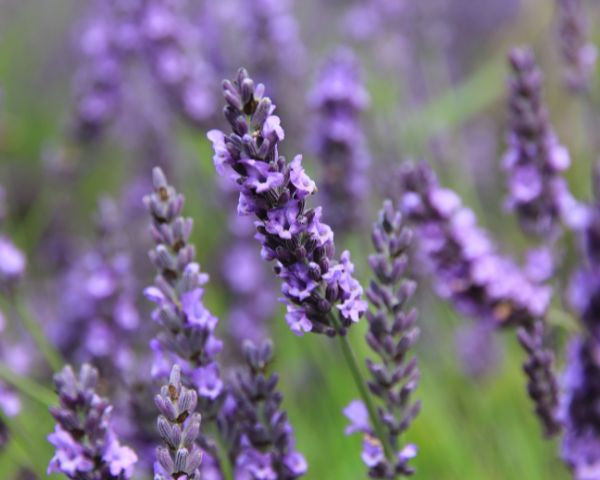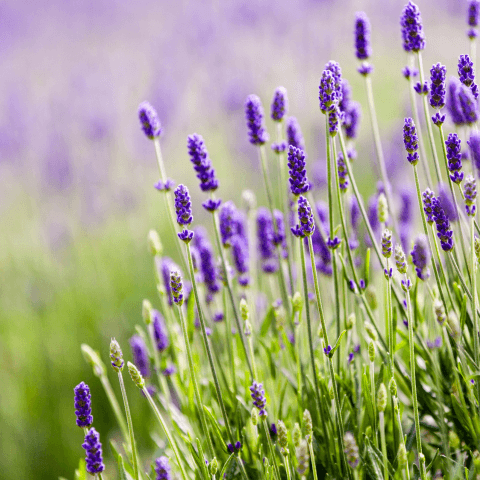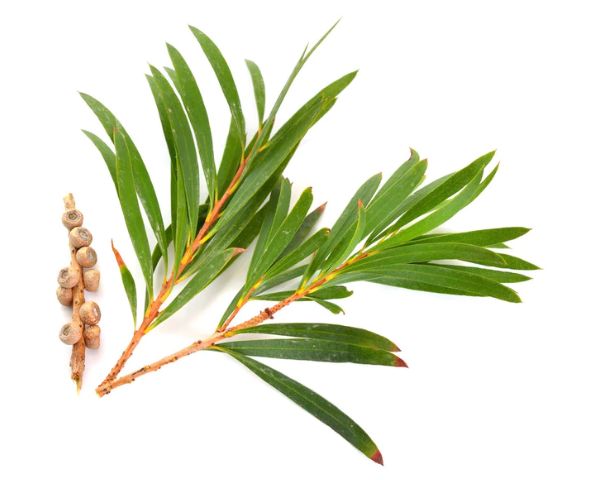What Oils to Use and How to Use Them
Essential oils have become a popular natural alternative to chemical insect repellents. With their wide range of options, they offer a great way to keep mosquitoes away while providing additional health benefits. This comprehensive guide delves into various types of essential oils known for their strong repellent action against adult mosquitoes and discusses the advantages of using these natural remedies over conventional bug repellents.
Citronella Essential Oil
The most popular essential oil used in mosquito repellents is citronella oil, known for its strong scent. Citronella oil is extracted from the Asian grass plant Cymbopogon genus and is known to keep away Aedes aegypti, the mosquito that carries the Zika virus.
It is also useful to repel other pests like tick, fleas and headlines. A review shows that a combination of citronella oil and Vanillin provides protection from mosquitoes for up to three hours. [1]
Furthermore, citronella has calming effects on the mind which is an added bonus for people who use it for repelling mosquitoes.
Oil of Lemon Eucalyptus
Oil of Lemon Eucalyptus (OLE) is derived from the leaves of the Eucalyptus citriodora tree and is chemically synthesized. It contains a compound called PMD (para-menthane-3,8-diol), which is known to repel insects. Research has shown that OLE provides protection similar to repellents with 15-20% concentration of DEET.
However, it is important to note that OLE is different from Lemon Eucalyptus Essential Oil. Lemon Eucalyptus Essential Oil is natural oil where OLE is chemically sythesized. More research into essential oil as repellent needs to be undertaken as there are no studies that show its efficacy and safety. [2]
Lavender Essential Oil
Lavender oil have a pleasant aroma and are often used for their calming and soothing effects. While it is not as effective as citronella essential oil as a natural mosquito repellent, it can still be used repel mosquitoes to some extent.
The lavender oil contains compounds such as linalool and linalyl acetate, which produce a strong odor and are known to have insect-repelling properties. Research suggests that this smell overloads the olfactory system and works similar to DEET whereby mosquito smell DEET and avoid it. [3]
Peppermint Essential Oil
Peppermint essential oil is another natural insect repellent that can be effective to repel mosquitoes. The oil is derived from the leaves of the peppermint plant and contains compounds such as menthol and limonene, which can help prevent undesirable mosquito bites.
One study shows peppermint essential oil repelled 84% of mosquitoes. [4] Another study shows that peppermint oil is effective in repelling mosquitoes for up to 3 hours. [5]
Catnip Essential Oil
Another natural insect repellent that can effectively repel mosquitoes at bay is catnip essential oil. The oil is derived from the leaves of the catnip plant and contains a compound called nepetalactone, which has been found to be effective in keeping mosquitoes away.
Research reports that essential oil in catnip is ten times more effective in repelling mosquitoes than DEET. It is also effective as a fly repellent. [6]
Tea Tree Essential Oil
Tea tree oil comes from leaves of Melaleuca alternifolia, found in Australia. It is a versatile oil that is often used for its antiseptic and anti-inflammatory properties.
While many studies have been published detailing the potential of essential oils to act as insect repellents, not many oils have been identified as viable alternatives to synthetic actives. A study has identified tea tree oil as an effective insect repellent. [7]
Clary Sage Essential Oil
Clary sage essential oil is derived from a herb named Salvia Sclarea. It is a popular oil that is often used for its calming and soothing effects, as well as its ability to relieve menstrual cramps and other types of pain.
Research shows that it has good repellent for tiger mosquitoes and provides protection for up to 60 minutes. [8]
Rosemary Oil
Rosemary essential oil is another natural oil that is often used for its medicinal properties. It contains compounds such as camphor, eucalyptol, and alpha-pinene, which have been found to have insect-repelling properties.
While there is some evidence to suggest that rosemary essential oil may be effective in repelling mosquitoes, it is not as reliable as other oils such as lemon eucalyptus or peppermint oil. Its effectiveness may also vary depending on factors such as the concentration of the oil, the individual’s body chemistry, and the mosquito species in the area.
Thyme oil
Thyme essential oil contains compounds such as thymol, carvacrol, and p-cymene, which have been found to help with repelling mosquitoes. It is a natural oil that is often used for its antimicrobial, antifungal, and anti-inflammatory properties. A study has shown thyme essential oil when applied topically provided protection against mosquitoes. [9]
With its anti-inflammatory properties, using thyme essential oils topically can help soothe itchy bug bites.

DIY Homemade Essential Oil Mosquito Repellent
Ingredients:
-
1/4 cup of witch hazel
-
1/4 cup of apple cider vinegar
-
30-40 drops of essential oil (choose from citronella, peppermint, eucalyptus, lavender, or lemon)
Instructions:
-
Begin by mixing together the witch hazel and apple cider vinegar in a small bowl.
-
Add 30-40 drops of your chosen essential oil to the bowl and stir well to combine.
-
Once the mixture is thoroughly mixed, transfer it to a spray bottle.
-
Shake the spray bottle well before each use and then spray the repellent onto your skin or clothing, making sure to avoid your eyes and mouth.
Note: It’s always a good idea to do a patch test on a small area of skin first to make sure you don’t have any adverse reactions to the ingredients. Also, whenever using these natural mosquito repellents, it should be reapplied every few hours for maximum effectiveness.
Ways to Use Natural Mosquito Repellents
Spray
Protecting yourself from pesky mosquito bites is easy with the use of mosquito repellent spray. Simply give the bottle a good shake and hold it about 6 to 8 inches away from your skin. Spray evenly over exposed skin, taking care to avoid the eyes and mouth. Some repellent sprays are also suitable for use on clothing, so be sure to read the label carefully.
Diffuser
To ward off mosquitoes in larger areas like outdoor patios or rooms, consider using a mosquito repellent diffuser. These diffusers come in both electric and battery-operated varieties, and release the repellent through heat. You can also opt for natural oils like citronella or lemongrass to diffuse instead.
Ointment
For those with sensitive skin or who prefer a targeted approach, mosquito repellent ointments are a great option. Apply the ointment to exposed skin, particularly on areas where mosquitoes tend to bite, like the arms and ankles. Remember to wash your hands after application and avoid contact with your eyes or mouth. You can also apply the ointment to clothing items like socks and hats for added protection.

Natural Repellents for Mosquitoes
Mosquitoes can be a menace, not only because of their annoying buzzing but also due to the potential health risks they present. Natural mosquito repellents offer an effective way to keep them away without using harsh chemicals.
Certain plants have natural oils that act as insect repellents. These include citronella grass, lavender, marigolds, and catnip. Mosquitoes hate the particular fragrance of these plants. So planting these around your home or outdoor areas can help keep mosquitoes away naturally.
Prevention Tips for Avoiding Mosquito Bites
Covering up as much of your skin as possible is essential when going outdoors; this includes long-sleeved shirts, pants, socks and closed-toe shoes plus hats with wide brims to protect the face from bites. This means wearing long-sleeved shirts, pants, socks and closed-toe shoes. Additionally, hats with wide brims can help protect the face from bug bites. Light shades may be preferable since mosquitoes tend to be drawn to darker tones such as dark blue or ebony.
If you want extra protection against insect bites, there are several clothing items available that have been treated with insect repellent such as permethrin or DEET which will last for several washings before needing reapplication.
Mosquitoes are generally more prevalent during the twilight and early morning periods, as they seek out nourishment from people or animals. To avoid being bitten by mosquitoes during these times it is best practice to stay indoors or if outdoors limit time spent outside during these hours when possible.
Additionally, avoiding areas where standing water has collected such as puddles or ditches can help reduce exposure risk even further since this is a prime breeding ground for many species of mosquitoes.
Areas to Avoid When Outdoors:
Certain outdoor activities may increase one’s risk of coming into contact with mosquitoes more than others due primarily based on location/habitat type and weather conditions at the time (e.g., warm temperatures).
For example, camping trips near bodies of water or marshy areas should be avoided if possible since those habitats are ideal for certain types of mosquitos which could lead to increased risk for disease transmission through biting activity. Similarly spending time in wooded areas, especially near dusk should also be limited if one wants to reduce their chances of getting bit by a mosquito while outdoors.
Homeowners can take steps around their property in order to minimize mosquito populations living nearby. This includes regularly removing any standing water that might accumulate around the house, filling in low spots where water collects, trimming back bushes and other foliage away from windows and doors so they remain well-ventilated, and installing window screens.
Additionally, using bug repellent like citronella candles burning throughout the yard can provide additional deterrents against mosquito activity while providing an enjoyable ambiance at the same time.
Heed the advice for avoiding mosquito bites to lower your chance of being bitten and catching a serious sickness. It is important to safeguard yourself from potential harm. It is crucial to comprehend the diseases that mosquitoes can spread when considering the health hazards associated with mosquito bites.
Make Your Own Essential Oils to Repel Mosquitoes
Essential oils can be a great way to keep mosquitoes away naturally and safely. These essential oil plant-based insect repellents offer a safe and natural way to repel mosquitoes. They are also more eco-friendly than the pesticides often used for mosquito control.
When employed in the right way, these oils can provide respite from mosquito bites and also help diminish any health hazards related to pesticides typically used against mosquitos. With proper prevention techniques in place along with a homemade recipe, you can enjoy being outdoors without worrying about pesky bugs.
References:
[1] Kongkaew et al; Effectiveness of citronella preparations in preventing mosquito bites: systematic review of controlled laboratory experimental studies. Trop Med Int Health (2011)
[2] Mi Young Lee; Essential Oils as Repellents against Arthropods. BioMed Research International (2018)
[3] Syed et al; Mosquitoes smell and avoid the insect repellent DEET. Proc Natl Acad Sci U S A. (2008)
[4] Ansari et al; Larvicidal and mosquito repellent action of peppermint (Mentha piperita) oil. Bioresource Technology (2000)
[5] Kumar et al; Bioefficacy of Mentha piperita essential oil against dengue fever mosquito Aedes aegypti L. Asian Pac J Trop Biomed. (2011)
[6] Zhu et al; Efficacy and safety of catnip (Nepeta cataria) as a novel filth fly repellent. Med Vet Entomol (2009)
[7] Greive et al; Development of Melaleuca oils as effective natural-based personal insect repellents. Australian Journal of Entomology (2010)
[8] Conti et al; Repellent effect of Salvia dorisiana, S. longifolia, and S. sclarea (Lamiaceae) essential oils against the mosquito Aedes albopictus Skuse (Diptera: Culicidae). Parasitol Res (2012)
[9] Choi et al; Repellent activities of essential oils and monoterpenes against Culex pipiens pallens. J Am Mosq Control Assoc. (2002)










